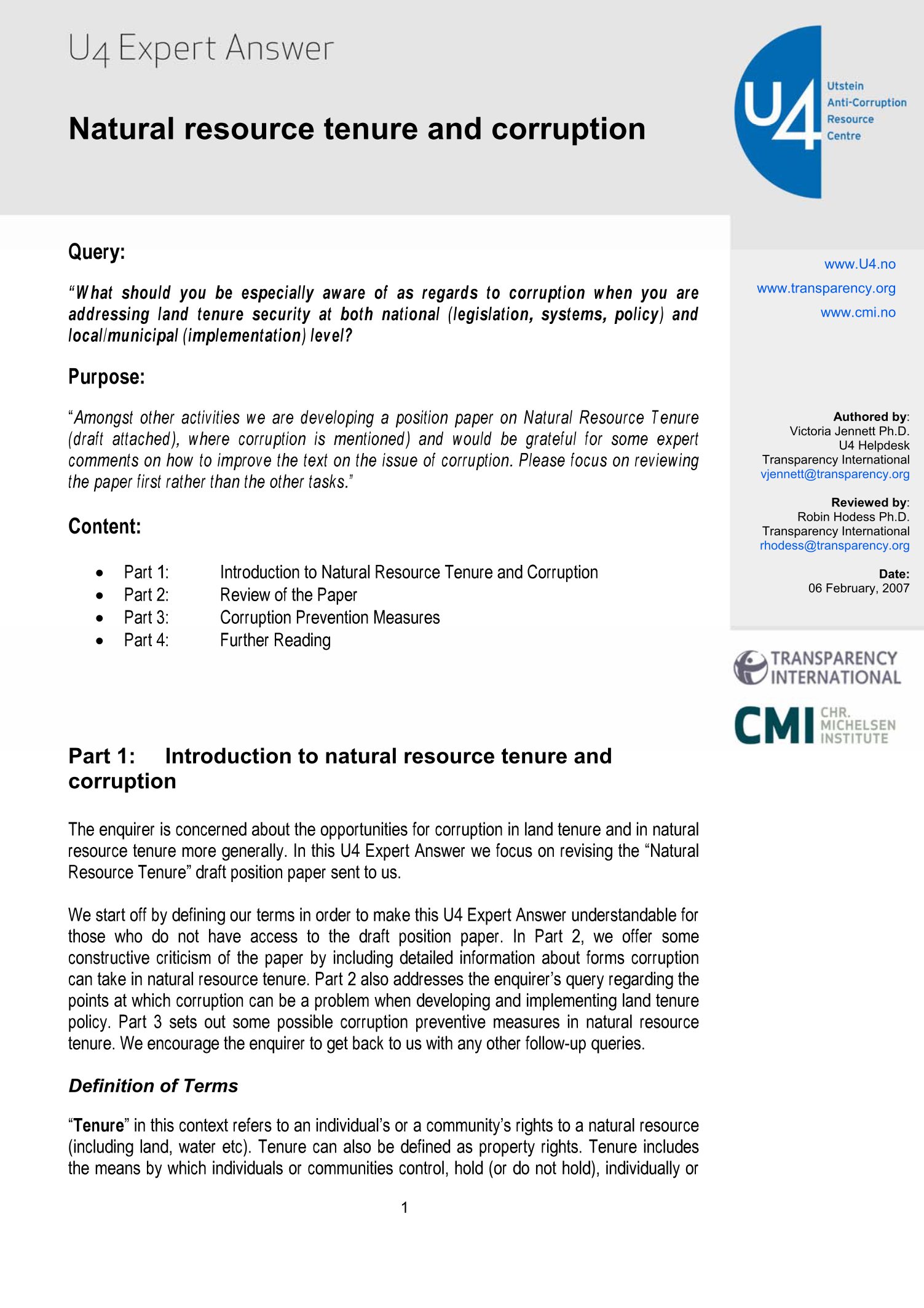U4 Helpdesk Answer
Natural resource tenure and corruption
Corruption opportunities can be generated at several levels of the of the land tenure systems starting from political interference at the policy development stage. Legislation dealing with land allocation and registration, land reform, tax legislation as well as legislation governing the management of natural resources can be especially vulnerable to corrupt practices, ultimately leading to severe environmental degradation. In addition to active participation in relevant regional and international initiatives such as the Forest Law Enforcement, Governance and Trade processes (FLEGT), prevention measures should ensure inter alia the active involvement of target groups and civil society from the early stage of environmental programmes, the simplification of overly complex regulatory frameworks, the creation of transparent conflict management mechanisms as well as independent investigation and prosecution of misdemeanours.

Cite this publication
Jennett, V. (2007) Natural resource tenure and corruption. Bergen: U4 Anti-Corruption Resource Centre, Chr. Michelsen Institute (U4 Helpdesk Answer Helpdesk 2007)
Disclaimer
All views in this text are the author(s)’, and may differ from the U4 partner agencies’ policies.
This work is licenced under a Creative Commons Attribution-NonCommercial-NoDerivatives 4.0 International licence (CC BY-NC-ND 4.0)